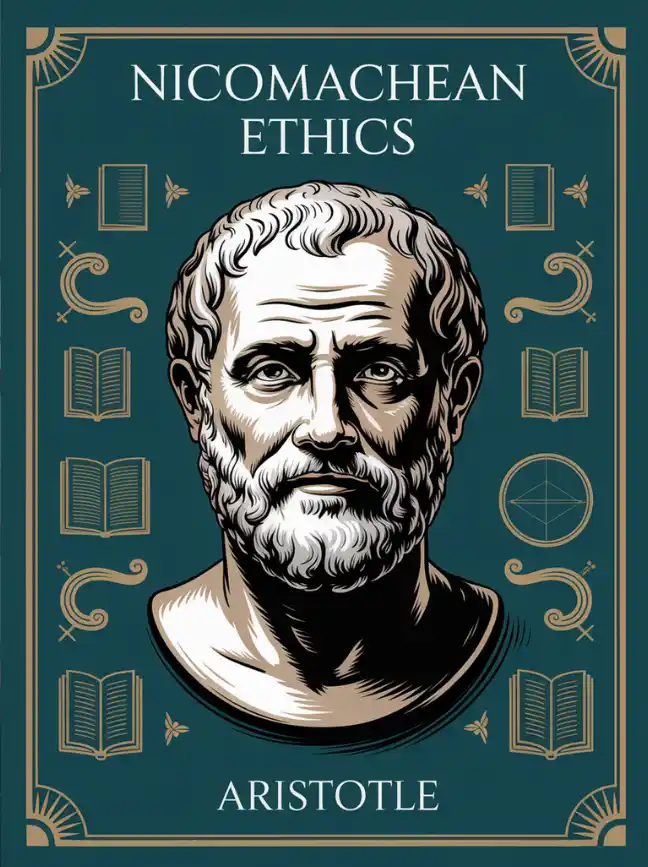Nicomachean Ethics is Aristotle’s foundational work on moral philosophy, where he explores the nature of the good life and how human beings can achieve true happiness, or eudaimonia. Aristotle argues that happiness is not a fleeting emotion but a state of flourishing achieved through virtuous living. Central to his philosophy is the idea of the “Golden Mean”—the notion that virtue lies between two extremes of excess and deficiency. For instance, courage is the mean between recklessness and cowardice.
Aristotle emphasizes that virtues are developed through habit and practice, not just knowledge. He discusses the roles of reason, character, friendship, and contemplation in the pursuit of a fulfilling life. According to him, the highest form of happiness comes from a life of intellectual activity and moral virtue, where individuals live in accordance with reason. Nicomachean Ethics remains one of the most influential texts in Western philosophy, shaping centuries of thought on ethics, personal development, and the meaning of a good life.






